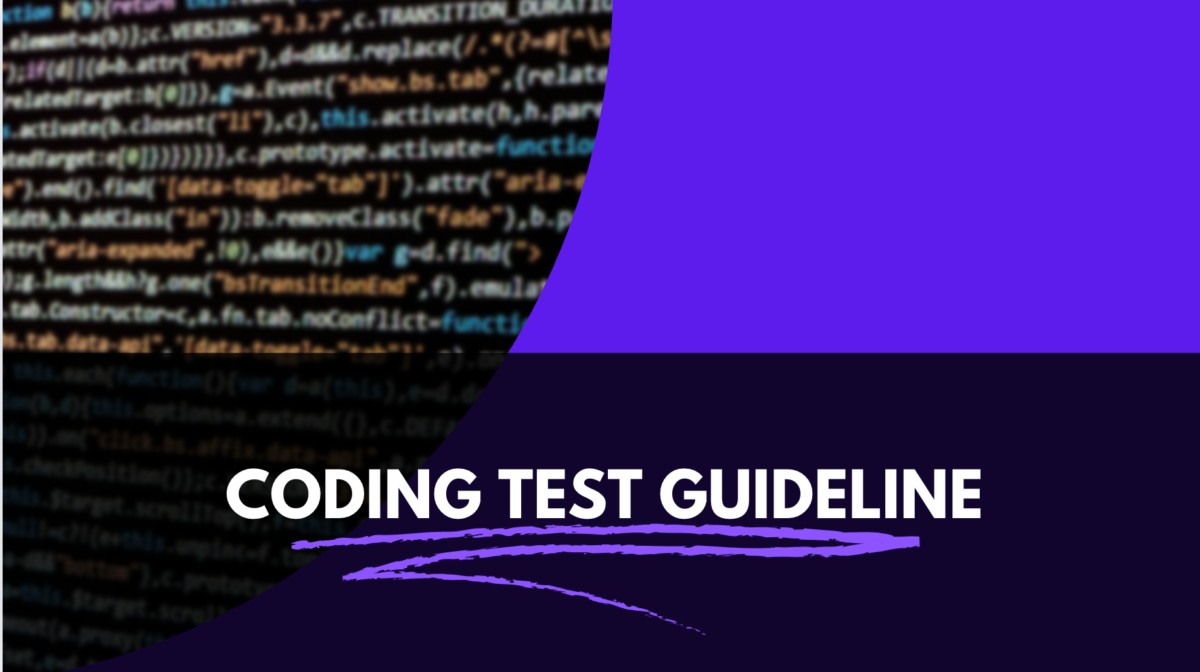This website uses cookies so that we can provide you with the best user experience possible. Cookie information is stored in your browser and performs functions such as recognising you when you return to our website and helping our team to understand which sections of the website you find most interesting and useful.
The Role of an RPA Developer in Business Automation

In recent years, the buzz around Robotic Process Automation (RPA) has been growing, and for a good reason. RPA is a software technology that utilizes robots to perform repetitive and mundane tasks in business processes. As a result, business operations become efficient, streamlined, and cost-effective. In this article, we will explore the role of an RPA developer in business automation and the essential skills required to excel in this role.
Understanding RPA and Its Importance in Business Automation
What is Robotic Process Automation (RPA)?
Robotic Process Automation (RPA) is a software technology that enables businesses to automate repetitive, rules-based processes. RPA robots, or bots, act as virtual employees that can perform a wide variety of tasks, such as data entry, extraction, and validation, without human intervention. With RPA, businesses can increase productivity, reduce errors, and improve customer satisfaction.
One of the key advantages of RPA is its ability to automate processes that are time-consuming and require a high degree of accuracy. For example, RPA can be used to automate the processing of invoices, which typically involves a lot of manual data entry. By automating this process, businesses can save time and reduce the risk of errors, which can lead to cost savings and improved customer satisfaction.
Benefits of Implementing RPA in Business Operations
The benefits of implementing RPA in business operations are numerous. RPA saves time and money by automating repetitive tasks, which also reduces the risk of human error. RPA can also improve the quality and accuracy of data collected, leading to better decision-making. Additionally, RPA can increase efficiency, allowing businesses to scale their operations and focus on growth.
Another benefit of RPA is its ability to improve employee satisfaction. By automating repetitive tasks, employees can focus on more interesting and challenging work, which can lead to increased job satisfaction and reduced turnover. RPA can also help businesses to attract and retain top talent by providing employees with opportunities to work on more complex and rewarding projects.
Implementing Robotic Process Automation (RPA) in mobile app development offers numerous benefits that can streamline and enhance the development process. Firstly, RPA automates repetitive and time-consuming tasks, such as code generation, testing, and deployment, enabling developers to focus on more critical aspects of the app. By reducing manual efforts, RPA improves efficiency and accelerates the development cycle, resulting in faster time-to-market for mobile applications. Additionally, RPA ensures consistency and accuracy in the development process, minimizing human errors and enhancing the overall quality of the app. It enables seamless integration with existing systems, databases, and APIs, facilitating data exchange and improving interoperability. RPA also provides real-time monitoring and reporting capabilities, allowing developers to track app performance, identify bottlenecks, and make necessary adjustments promptly.
Industries That Can Benefit from RPA
RPA can benefit almost any industry that relies heavily on repetitive processes. Some of the industries that can benefit from RPA include healthcare, finance, telecommunications, and manufacturing. For example, RPA bots can streamline insurance claims processing, automate accounting tasks, and optimize supply chain management processes.
In the healthcare industry, RPA can be used to automate patient record management, appointment scheduling, and billing. By automating these processes, healthcare providers can improve patient care and reduce administrative costs. In the finance industry, RPA can be used to automate loan processing, account reconciliation, and fraud detection. By automating these processes, financial institutions can improve efficiency and reduce the risk of errors.
Overall, RPA is a powerful tool that can help businesses to improve efficiency, reduce costs, and improve customer satisfaction. By automating repetitive tasks, businesses can free up employees to focus on more complex and rewarding work, which can lead to increased job satisfaction and reduced turnover.
Key Role of an RPA Developer

Designing and Developing RPA Solutions
The primary Role of an RPA Developer is to design and develop RPA solutions based on business requirements. They analyze the processes and identify areas that can be automated using RPA technology. They also design the RPA workflow and develop the bots using programming languages such as C#, Java, or Python.
Integrating RPA with Existing Systems
RPA developers also need to integrate RPA with existing systems, applications, and databases. They ensure that the RPA bots can interact with these systems and perform the tasks assigned to them. Integration requires knowledge of APIs, web services, and other integration methods.
Monitoring and Maintaining RPA Bots
RPA developers are responsible for monitoring and maintaining the RPA bots to ensure that they operate effectively and efficiently. They need to identify and resolve any bottlenecks or issues that the bots encounter during execution. They also need to update the bots regularly and perform maintenance tasks such as backups and recovery.
Collaborating with Cross-Functional Teams
RPA developers need to collaborate with cross-functional teams such as business analysts, project managers, and quality assurance teams. They need to ensure that the RPA solutions align with business requirements and project timelines. They also need to provide support and guidance to other team members on RPA-related topics.
Essential Skills for an RPA Developer
Robotic Process Automation (RPA) is an emerging technology that has revolutionized the way businesses operate. It involves automating repetitive and mundane tasks using software robots, freeing up human resources to focus on more strategic and high-value tasks. As the demand for RPA continues to grow, so does the need for skilled RPA developers who can design, develop, and maintain RPA solutions.
Technical Skills and Programming Languages
One of the most important skills for an RPA developer is technical proficiency. They need to have a strong foundation in programming languages such as C#, Java, or Python. They also need to have a good understanding of databases, APIs, web services, and other integration methods. This knowledge is essential for designing and developing RPA solutions that can interface with different systems and applications. Moreover, the Role of an RPA Developer is to be familiar with RPA tools such as UiPath, Automation Anywhere, or Blue Prism, which are widely used in the industry for developing RPA solutions.
An app developer plays a crucial role in implementing Robotic Process Automation (RPA) solutions. As organizations seek to automate repetitive and rule-based tasks, the app developer’s expertise becomes invaluable in building and integrating RPA capabilities into existing systems. The developer’s primary responsibility lies in designing and developing applications that enable the RPA bots to interact with various software applications and systems. They work closely with business analysts and RPA experts to understand the workflow, identify automation opportunities, and determine the best approach for implementation.
Process Analysis and Optimization
Another critical skill for an RPA developer is process analysis and optimization. They need to have a keen eye for identifying areas that can be automated and optimized to improve efficiency and reduce costs. This requires a deep understanding of the business processes and workflows that the RPA solution is intended to automate. RPA developers need to work closely with business analysts and subject matter experts to identify these areas and develop solutions that align with business requirements and project timelines. Additionally, RPA developers need to be able to analyze and optimize the RPA workflow to ensure that it is efficient and effective.
Problem Solving and Critical Thinking
RPA developers need to be problem solvers and critical thinkers. They need to be able to identify issues and bottlenecks in the RPA workflow and come up with solutions to resolve them. This requires a deep understanding of the underlying technology and programming concepts. RPA developers need to be able to analyze and debug code to identify and fix any issues. They also need to be able to troubleshoot problems that arise during the implementation and deployment of the RPA solution.
Communication and Collaboration Skills
Finally, RPA developers need to have excellent communication and collaboration skills. They need to be able to communicate complex technical information clearly and concisely to non-technical team members. This is essential for ensuring that all stakeholders understand the RPA solution and its benefits. Additionally, RPA developers need to be able to collaborate effectively with cross-functional teams on RPA-related projects. This requires strong interpersonal skills and the ability to work well in a team environment.
In conclusion, RPA developers need to have a diverse range of skills to be effective in their roles. They need to have technical proficiency, process analysis and optimization skills, problem-solving and critical thinking skills, and communication and collaboration skills. By developing these skills, RPA developers can design, develop, and maintain effective RPA solutions that drive business value and improve operational efficiency.
The RPA Development Process
Identifying Opportunities for Automation
The RPA development process is a systematic approach to automating business processes using RPA technology. The process begins with identifying opportunities for automation. RPA developers work closely with business analysts and other team members to identify processes that can be automated using RPA technology. They also analyze the processes to determine the feasibility and potential ROI of the automation.
During this stage, RPA developers gather information about the processes that need to be automated. They interview employees who are involved in the process to understand how it works and identify areas that can be improved. They also collect data about the process, such as the number of transactions, the time it takes to complete the process, and the number of errors that occur.
By identifying opportunities for automation, RPA developers can help organizations reduce costs, improve efficiency, and increase accuracy. They can also free up employees to focus on more strategic tasks that require human skills and judgment.
Designing the RPA Workflow
Once the opportunities for automation are identified, RPA developers need to design the RPA workflow. This includes identifying the steps that the bots will perform, the sequence of the steps, and the triggers that initiate the process. They also need to identify the data sources and the systems that the bots will interact with.
During this stage, RPA developers create a detailed plan for the automation process. They break down the process into individual steps and determine how the bots will execute each step. They also identify any exceptions or errors that may occur and develop a plan to handle them.
RPA developers use specialized software to design the RPA workflow. This software allows them to create a visual representation of the process flow, which makes it easier to understand and modify.
Developing and Testing the RPA Solution
After designing the RPA workflow, RPA developers need to develop and test the RPA solution. This includes developing the bots using programming languages and RPA tools. They also need to test the bots to ensure that they operate effectively and efficiently. Testing includes verifying that the bots perform the tasks assigned to them and that they interact with the systems and data sources correctly.
During the development stage, RPA developers write code that instructs the bots on how to perform each step in the process. They also create a user interface that allows users to interact with the bots and monitor their progress.
Once the bots are developed, RPA developers test them in a controlled environment to ensure that they operate as expected. They also perform integration testing to ensure that the bots can interact with other systems and applications.
Deployment and Continuous Improvement
Once the RPA solution is developed and tested, RPA developers need to deploy it in the production environment. They need to ensure that the deployment process is smooth and that the bots are operating as expected. They also need to monitor the bots’ performance and identify areas that require improvement. Continuous improvement includes updating and maintaining the bots and identifying new opportunities for automation.
During the deployment stage, RPA developers work closely with IT operations teams to ensure that the bots are deployed correctly. They also provide training to employees who will be using the bots.
After the bots are deployed, RPA developers monitor their performance to identify any issues that may arise. They use specialized software to track the bots’ activity and identify any errors or exceptions that occur. They also collect data about the bots’ performance, such as the number of transactions they process and the time it takes for them to complete each transaction.
Continuous improvement is an essential part of the RPA development process. RPA developers regularly review the bots’ performance and identify areas that can be improved. They also work with business analysts to identify new opportunities for automation.
By continuously improving the bots, RPA developers can help organizations achieve their automation goals and stay ahead of the competition.
Conclusion
The role of an RPA developer in business automation is critical in achieving efficient and cost-effective business operations. RPA developers need to have an excellent mix of technical, analytical, and communication skills to excel in this role. Understanding the RPA development process and the skills required to be an RPA developer can help businesses automate their processes effectively and reap the benefits of RPA technology.



